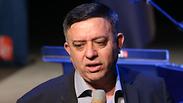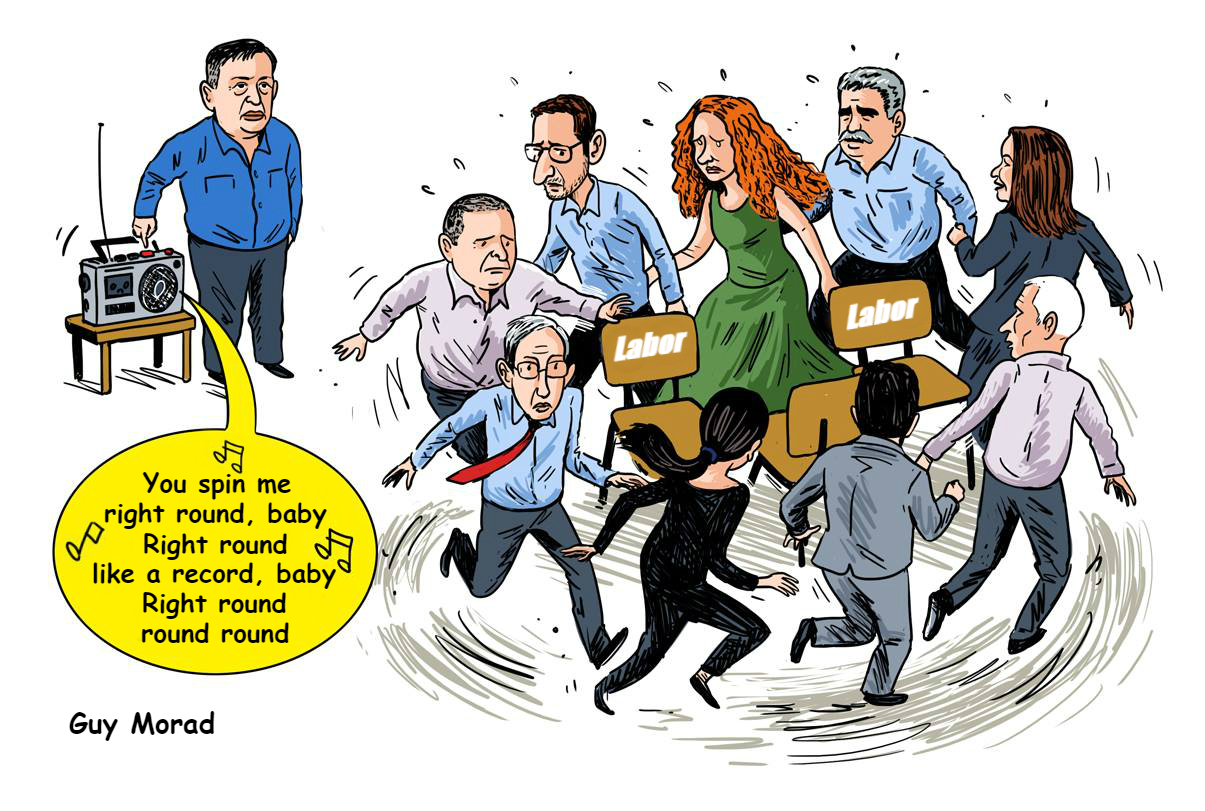
Labor Chairman Avi Gabbay
Photo: Motti Kimchi
"A festival of democracy" is declared every time a party holds primary elections. Labor Party voters are going to elect their Knesset candidates on Monday,
but there is no festival, not even a trace of it. The candidates have been running around the country in recent weeks in an effort to gather votes; they found a cold shoulder. Each party is supposed to have a hard core base, which follows it even in times of crisis. But now it appears Labor's base has grown weary.
People will go to the polls because of their personal preference for one candidate or another, not because of an obligation to the party these candidates represent. Such-and-such values Merav Michaeli, and so he will bother going to the polls to vote for her; another believes in Stav Shaffir, and so he will cast a ballot to make her happy; the same goes for Omer Bar-Lev, Shelly Yachimovich, Eitan Cabel and others. Of the party itself, from the political framework, the voters have no expectations.
The despair, the despondency, and the alienation are contagious. Politicians normally know how to fake optimism, but in the Labor Party they mostly display misery.
The problem is not in the candidates: most of them are talented people who worked hard in the Knesset and did what they could within the limitations of the opposition. The problem is the brand: Labor has lost what was left of its charm. It's easy but disingenuous to lay the blame at the feet of Avi Gabbay. Yes, he erred again and again with his political comments and internal conduct. Yes, the personal quarrels at the top have eroded the party's efficacy and public status. But the problem lies elsewhere: the Labor Party is not built for prolonged periods in the opposition. It's not in its voters' DNA. Four years ago, Isaac Herzog gave them hope when he teamed up with Tzipi Livni's Hatnua. It may have not gotten them back in power, but it did get them 24 seats in the Knesset. That hope is not dead, it simply moved over to Benny Gantz.
Gabbay said last week, at an event to launch his new book, that the problem with Labor activists is their priorities — they want to be proven right more than they want to win. It appears, however, that he confused Labor with Meretz. Labor voters' top priority is indeed to win, Gabbay just doesn't know how to convince them that he can deliver.
The question is not who is elected on Monday and how high they get on the list, but rather where the Labor Party is heading. Even if it somehow passes the election threshold, does it truly have the right to exist as a small party with less than 10 seats? What makes it unique? What differentiates it from other parties on the center-left political spectrum? I believe the answer is simple - Labor is not built for ordinary days, it's made for grandness.
Meretz will hold its primaries on Thursday. If the two parties' survival instinct kicks in, they will form one list ahead of the deadline on February 21. The merger will unburden the two parties from the existential anxiety of potential obliteration. It would be good for them and good for the bloc. The day after the general elections, they could split again. The members of the party could make a decision about their own future—as a separate party, as part of Meretz, or even as part of Gantz's Israel Resilience.
At the moment, the current elections are not seen as a struggle between left and right, or even a fight between the two-state solution or a binational state—but as a struggle for the continuation of the Netanyahu regime. This is how Gantz and Yesh Atid leader Yair Lapid have been marketing it to their voters, and this is also what Netanyahu is marketing. The burning desire to end Netanyahu's tenure is the only thing Ahmad Tibi and Moshe Ya'alon have in common.
If by some miracle the alternative bloc becomes the majority, its problems will only begin. The list Gantz is putting together is filled with glamorous names, but it has no set position on the fundamental issues on the public's agenda. There is no consensus even on whether or not to join a Netanyahu government before the prime minister is summoned to a hearing ahead of possible corruption charges. It will have a hard time functioning as a ruling party, and even harder as an opposition party. We may even see the cracks form before the elections.
Likud voters went to the polls thinking about the day after Netanyahu. They have reached the conclusion that that day is nigh; perhaps not in the coming elections, but at some point in the coming term. So they preferred to ignore Netanyahu's demands and did their best to prepare their party for what's coming.
This is also what is required of the Labor Party voters: think about the bloc, and think about the day after. Their party's historical role may have ended, but this is not the time to cast Labor aside. Not now.




















